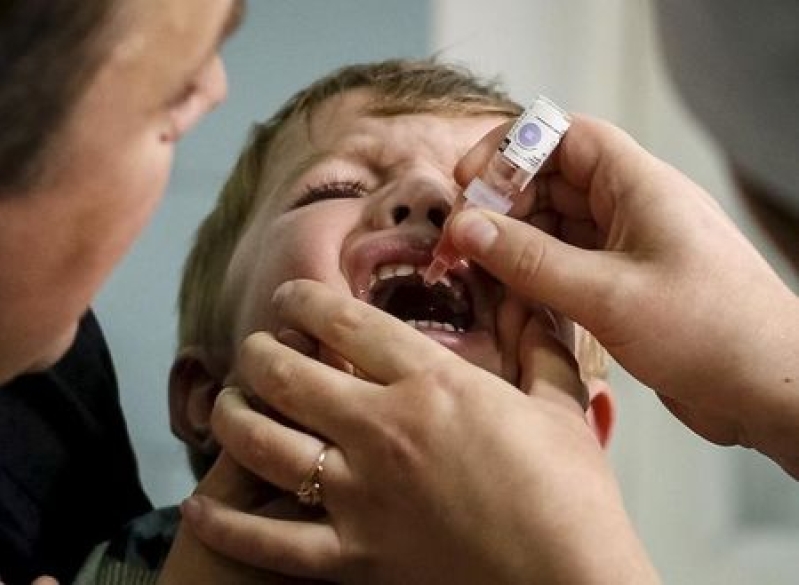
The world should stop vaccinating children against one of the three strains of the crippling polio virus as part of a drive to eradicate the disease once and for all, a group of health experts has advised the World Health Organization.
There is no cure for polio, which attacks the nervous system and can cause irreversible paralysis within hours of infection.
Currently, the primary tool against the disease is an oral vaccine, which zaps all three types of polio.
The group is now recommending switching to a vaccine that only targets types 1 and 3, between April 17 and May 1, 2016, as type 2 has not been detected since 1999 and use of the vaccine itself can occasionally, inadvertently, aid the spread of the disease in countries with poor vaccine coverage.
"This week a momentous decision was made. And the decision was to go ahead and make the switch because we think we can eradicate polio. This is a huge step towards that," the chairman of the group, Jon Abramson, said on Friday.
The world has only once managed to eliminate a disease, which was smallpox, but now was the time "to pull the trigger and go for polio eradication", Abramson said.
A global vaccination campaign has all but beaten all three types of the wild polio virus, with only Pakistan and Afghanistan reporting cases this year.
But people who are vaccinated excrete the virus, putting those who have not been vaccinated at risk of catching it. Vaccine-derived cases have recently popped up in places with low vaccine coverage, such as Laos, Ukraine, Madagascar and Guinea.
"We want to stop that small number of type 2 that occurs in outbreaks," said Abramson. "When we're not giving type 2 (vaccinations) you're not going to see those outbreaks."
Hamid Jafari, director of polio eradication at the WHO, said the eventual goal was to phase out the type 1 and type 3 vaccines as well and to switch globally to "inactivated" vaccines, which are more costly and need to be injected rather than swallowed, but don't carry the risk of spreading the virus.
"We need at least three years of no wild polio virus circulation and good surveillance for the Global Commission (for the Certification of Poliomyelitis Eradication) to certify eradication of wild polio virus," he said.
"We haven't seen type 3 wildtype in over three years. Hopefully very soon we will stop seeing wildtype type 1," Abramson said.
The group that he chairs, the WHO's Strategic Advisory Group of Experts (SAGE), recommends global immunization policies to the U.N. health agency.
(Editing by Gareth Jones)







